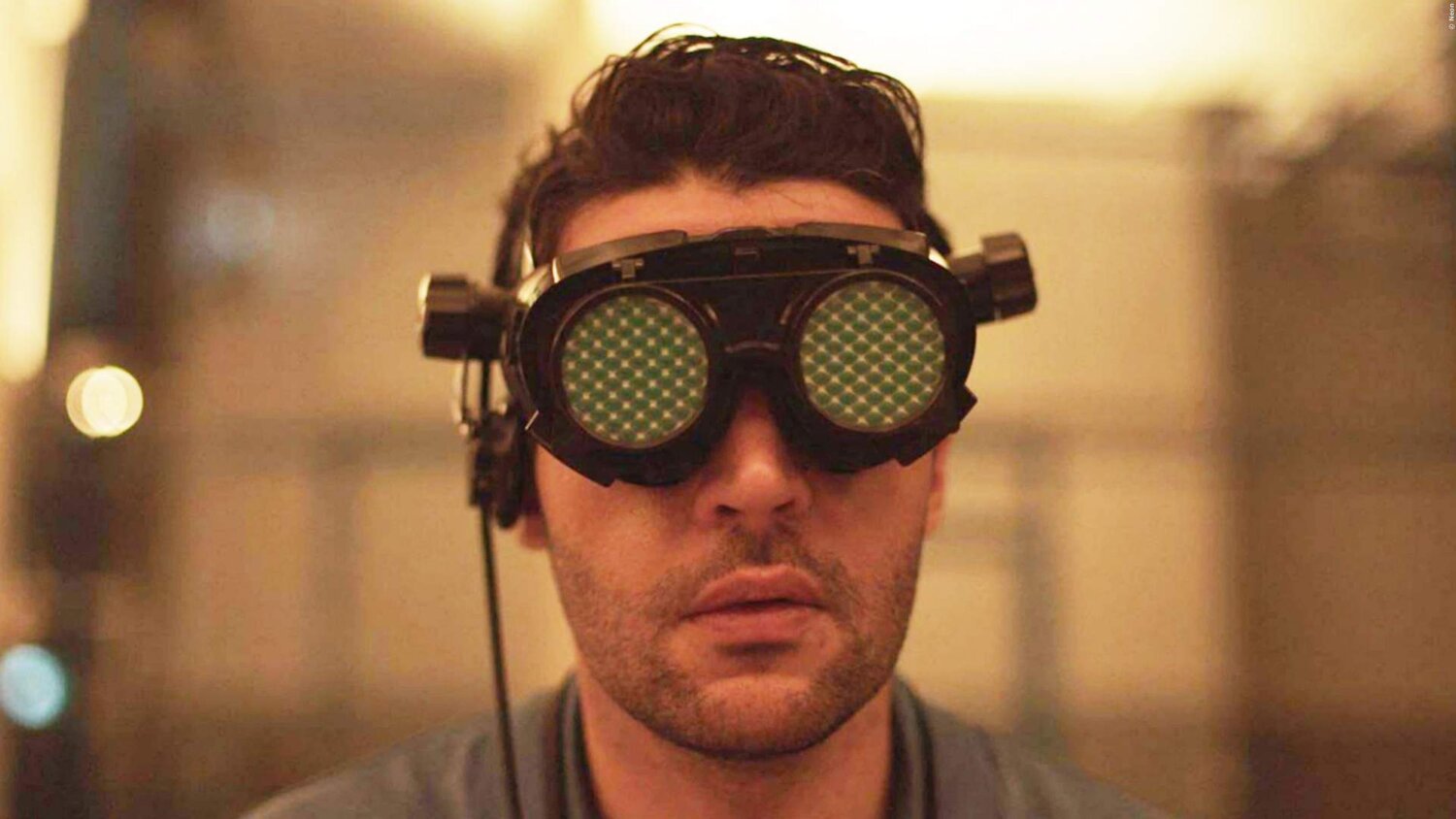The Dream-Bird: Revisiting Brandon Cronenberg’s Modern Classic Possessor
“Boredom is the dream-bird that hatches the egg of experience.”
This quote from German philosopher Walter Benjamin opens a number of paths to interpreting Brandon Cronenberg’s unnerving second feature Possessor. In his essay “The Storyteller,” the source of the quote, Benjamin contrasts the essential truths of formal narrative against the post-industrial churn of mere information. In the film, the line is spoken by the founder of a big data firm, a smug billionaire who later experiences a gory facelift via fire poker. So, there’s that.
For those who missed Cronenberg’s debut Antiviral, a masterful lancing of body-horror that may have been obscured by his father David’s dominance of the genre, Possessor revealed a filmmaker tackling societal rot with a perverse Buñuellian edge. Due to its unfortunate 2020 release date, post-Covid and pre-vaccine, Possessor didn’t see much of a theatrical release, but its vision radiates from the smallest of screens like so much dystopian smog.
The film follows Tasya Vos, an elite assassin whose specialty is hijacking the minds of kidnapped host bodies to carry out traceless homicides. Her hits result in windfalls of cash and stock changing hands between giant corporations. Alienated from her estranged husband and son, Vos dives into her latest mission: kill the philosophy-quoting tech founder John Parse, thereby destabilizing his firm for a hostile takeover.
In failing to compartmentalize her work from the demands of marriage and motherhood, Vos has begun to develop a taste for off-script ultra-violence. Why execute a mark with a quick double-tap when you can take your time and splash around in the blood? Vos shrugs off her sadism as a simple matter of personal branding. “Maybe it seemed more in character.”
To get close to Parse, Vos commandeers the body of his daughter’s boyfriend, a small-time coke dealer named Colin Tate. Things go pear-shaped when Colin wakes up and begins to fight Vos for control, leading to a phantasmagorical battle across the characters’ shared mindscape.
One of the film’s many wonders is the way it handles this high concept premise with almost Bergman-esque intensity. Andrea Riseborough as Vos, and Christopher Abbot as Colin, deliver two of the best movie performances in recent memory. Riseborough embodies Vos’ corrupted vulnerability in burnt-out sighs, an exhausted slouch as she rehearses a canned greeting for her family. Abbott balances the demands of his role with painterly precision; even in scenes where Colin’s body is controlled by Vos, he generates empathy for this outsider adrift in a world of closely guarded privilege.
Working with longtime cinematographer Karim Hussain, Cronenberg presents a distinctly analog world-build, composing stark images in a muted, wintry palette. Every prop is deliberately placed, eye-catching yet grounded in verisimilitude. “I use that biopsy punch!” my girlfriend, a veterinarian, noted at one point.
The crisp detail work extends to the film’s particular moral universe. Early in the film, Vos endures a banal dinner party where her husband, an academic, jokes about a colleague’s chest hair being a “war crime.” A rude parent is an “atrocity.” Real-world horror is processed into light banter among the educated and well-informed.
From there, Possessor takes the aestheticization of violence to new heights, but the grindhouse moments are threads woven into the everyday brutality of exploitation and oppression, the shallow hierarchies of wealth. John Parse, played by Sean Bean with sublime oligarchal ooze, lords his fortune over his dysfunctional family, providing a convenient back story for a murder-suicide. “Fuck off with your mother in Dubai,” he drunkenly slurs to his daughter, and constantly humiliates Colin, asking if he can handle the lowly data mine job he’s thrown him as charity.
In true body horror fashion, Cronenberg lovingly depicts technology’s assault on the human body. The more quotidian details linger – Vos suffers debilitating hand cramps, and her boss Girder (an effortlessly cool Jennifer Jason Leigh), a former body-snatcher herself, is constantly massaging her neck and shoulders, evoking chronic nerve damage caused by their strange profession.
In the dream-bird centerpiece of the film, we follow Vos-as-Colin into the cavernous data mine, shuffling along with a line of workers in a shot evoking Fritz Lang’s proto-dystopia Metropolis. The miners strap on bug-like VR headsets and spend their shift spying through unsuspecting consumers’ webcams, logging their shopping preferences. Vos becomes lost in this maze of realities, cracking open her conflict with Tate’s consciousness.
In the mine, existence itself is reduced to a commodity to be stolen, bought and sold by massive and unaccountable organizations. This is the bargain we make in modern digitized society, in trade for the ability to process unpleasant realities into storytelling, endlessly manufacturing resolution. This mediated reality has hatched a strange bird indeed, one that fetishizes the corporeal and the visceral.
Who commits the actual atrocities in the film’s transgressive climax, the murderous parasite or the rebellious host? The film’s devastating final shot opens yet more challenging paths of interpretation. You’ll never look at a butterfly the same way again.
**See also: Brandon Cronenberg’s short film Speak Continuously And Describe Your Experiences As They Come To You (2019), which features experimental special effects developed for Possessor’s mind-melting sequences. It’s currently streaming on the Criterion Channel.




Matthew K. Seidel is a writer and musician living in Austin since 2004. The above selfie was taken in an otherwise empty screening of Heat at 10:30 in the morning. You can find him on Letterboxd @tropesmoker.